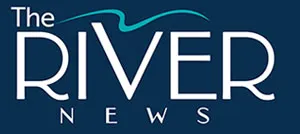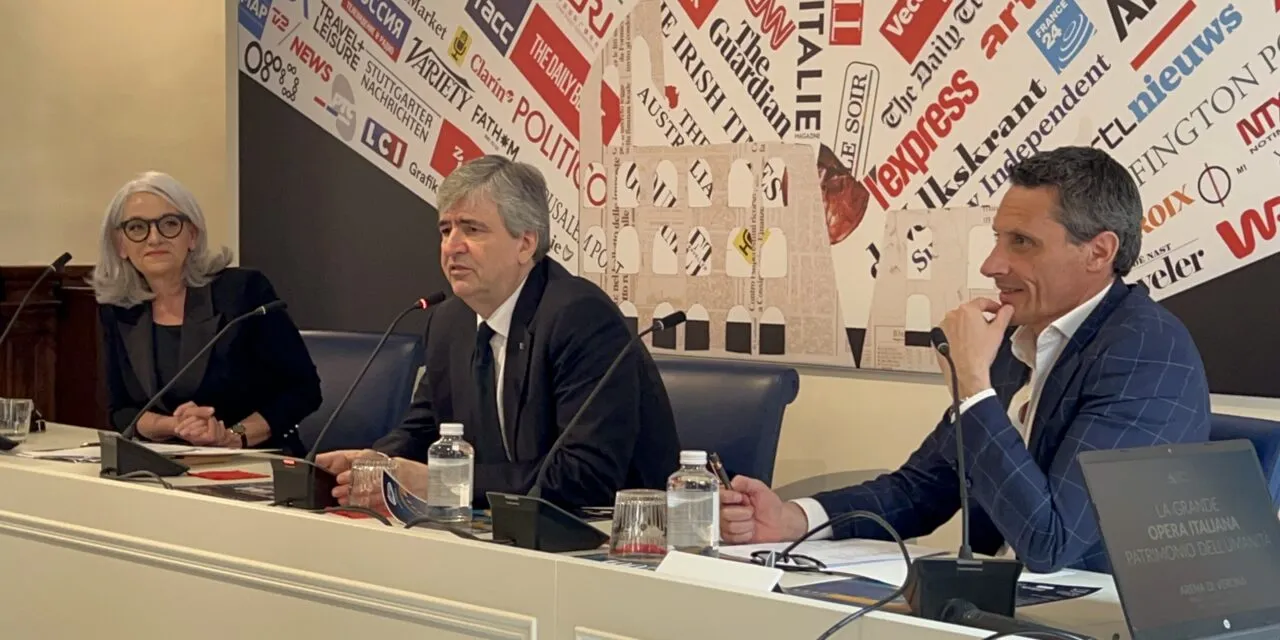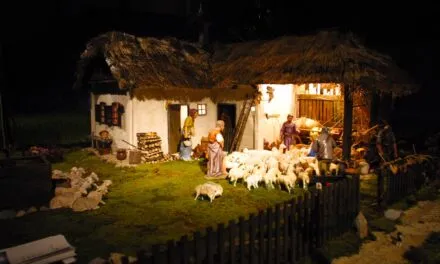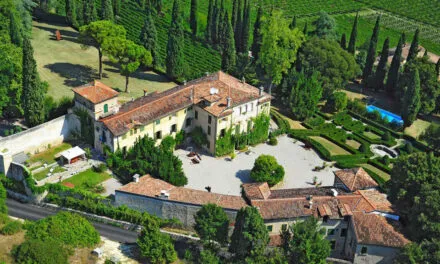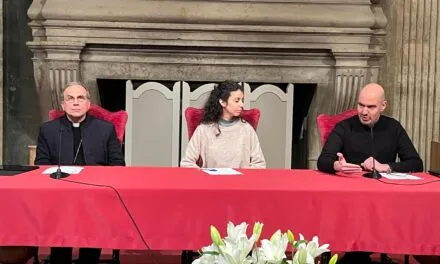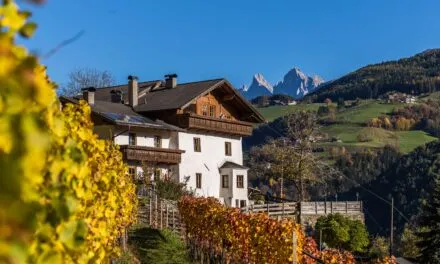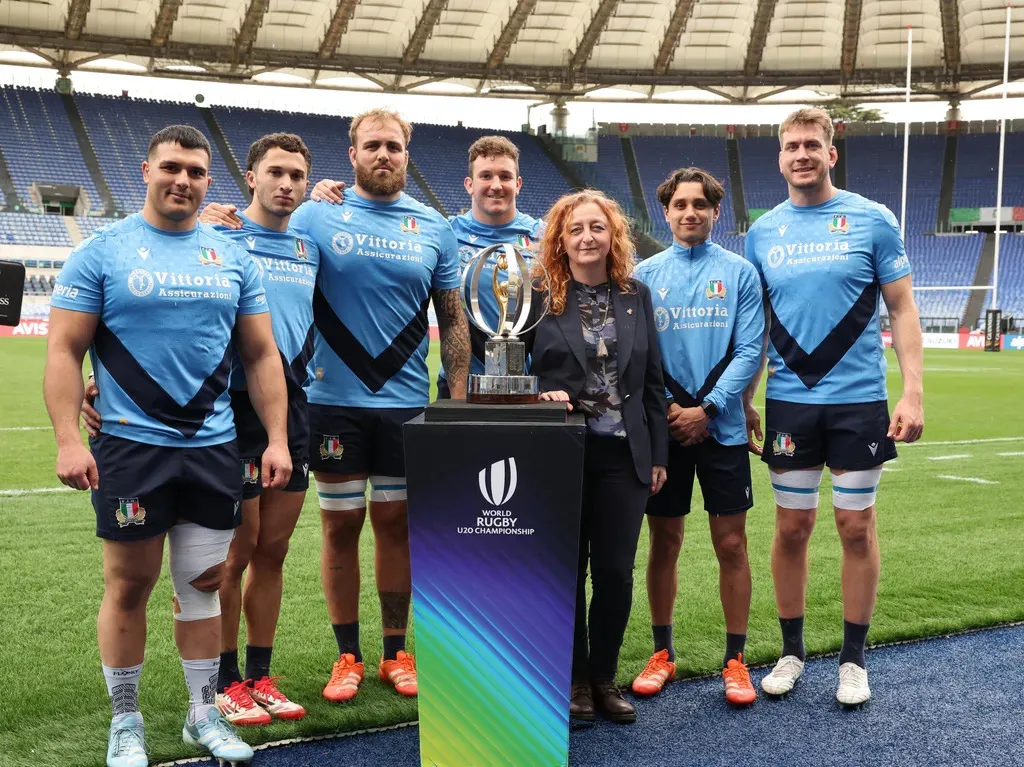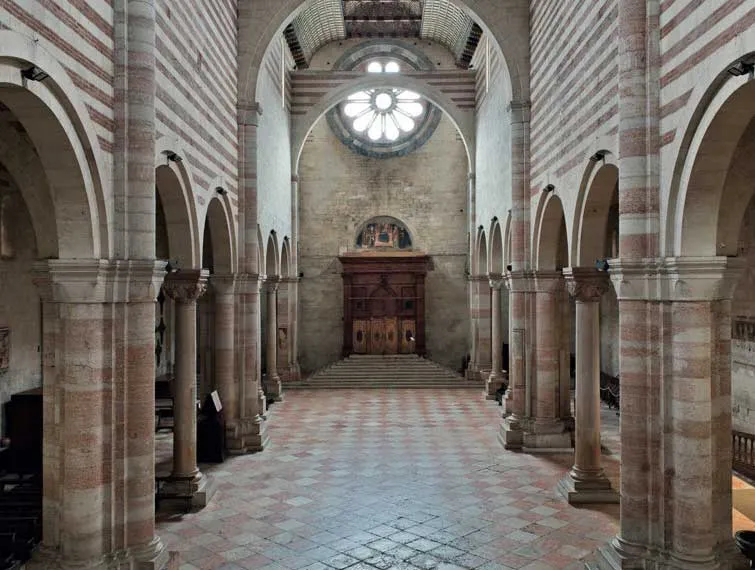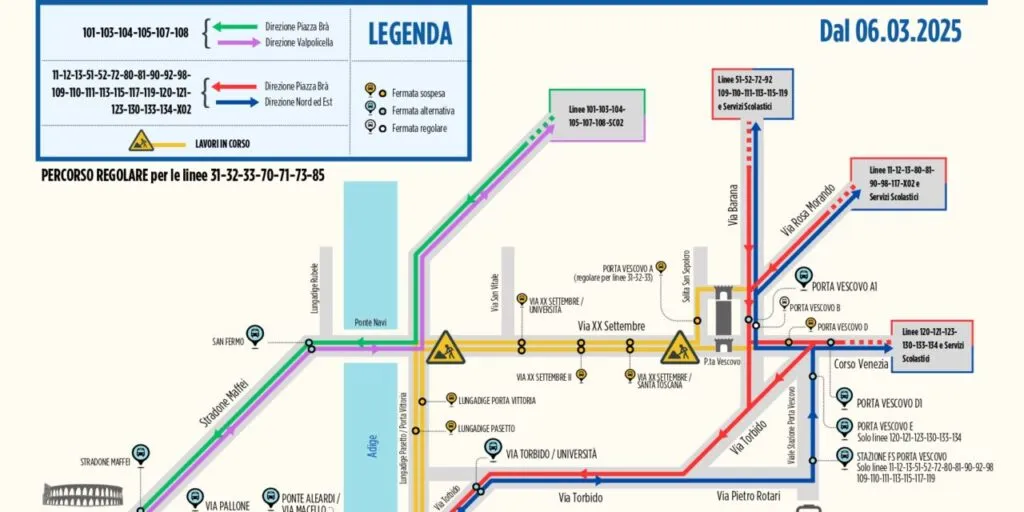The 101st Arena di Verona Opera Festival season opens with La Grande Opera Italiana Patrimonio dell’Umanità, a first-ever inauguration and test bed for a national-scale initiative. On June 7, 150 orchestra professors and 300 chorus artists from all of Italy’s lyric-symphonic foundations will gather at the Verona amphitheater. “We are creating an evening that is sure to be remembered,” said Undersecretary for Culture Gianmarco Mazzi, who attended the festival’s presentation conference at Palazzo Grazioli in Rome. Following the season’s first event, for the official opening on June 8, there will be Turandot, signed by Franco Zeffirelli.
“There will be hundreds of professionals on June 7, and the evening will be opened by Riccardo Muti, whose name is already a guarantee of success,” the undersecretary went on to say. “And the one at the Arena will be the first event, as part of a broader effort aimed at elevating opera singing even further, especially now that it has been designated as UNESCO’s intangible cultural heritage. We intend to make this occasion an annual event. Next year, for example, we would like to take it to Rome and create an event combining holy music and opera for the jubilee celebration. But we picked Verona specifically for the Arena’s exceptional ability to host major, international events.”
Actually, it will be an evening with significant worldwide resonance since, in addition to the presence of all the UNESCO officials who voted to designate opera singing as a UNESCO heritage site, there will be ambassadors from the nations that most enjoy opera. Then, the evening will not only be shown live on RAI, but more than 40 international television stations have already requested to air the event.
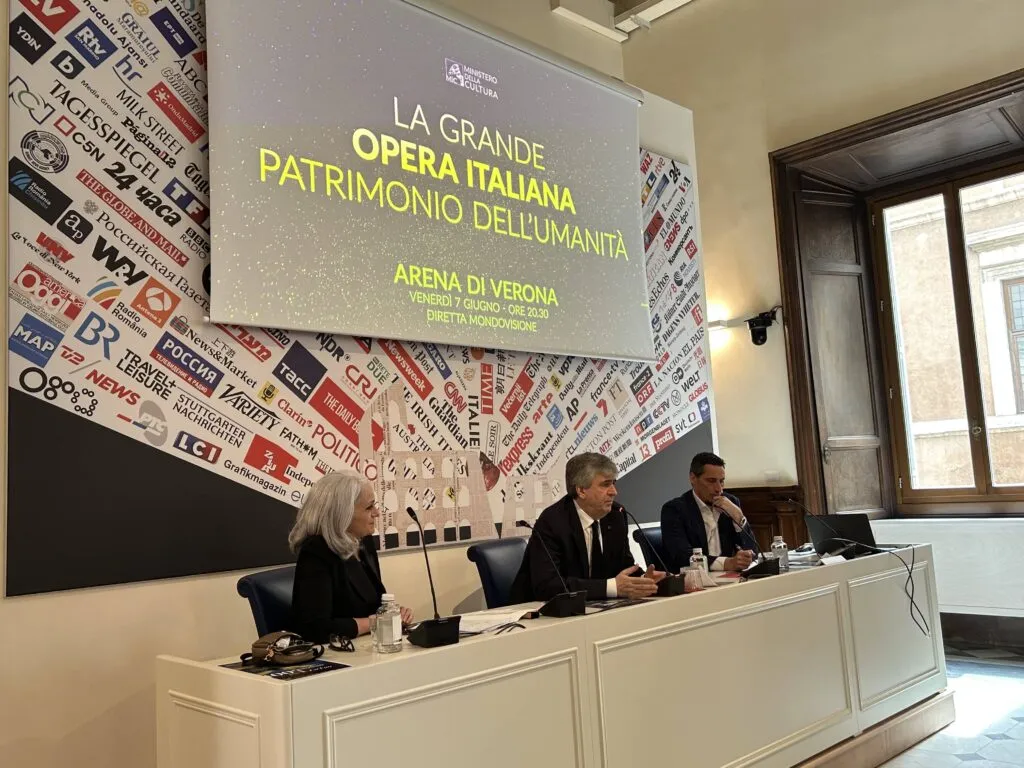
A bill of fifty appointments with the Arena di Verona Opera Festival.
In addition to La Grande Opera Italiana Patrimonio dell’Umanità, the new season includes fifty appointments from June 7 to September 7, bringing some of the world’s best performers to Verona. Among remarkable returns and firsts, the season will start with a stunning Turandot, signed by Franco Zeffirelli and planned for June 8. This year, however, there are many newcomers, including Anna Natrebko, who will play Tosca’s role for the first time, and Alfonso Signorini’s Bohème, which will have its amphitheater premiere.
There will, of course, be the festival’s four famous operas. Beginning with Giuseppe Verdi’s Aida, which will be presented in two separate productions: the “crystal” one signed by Stefano Poda on the occasion of the festival’s 100th anniversary (staged June 14-Aug. 1), and the 1913 re-enactment staging by Gianfranco de Bosio (Aug. 10-Sept. 5). There is also enormous expectation for George Bizet’s Carmen, directed by Franco Zeffirelli (July 5-Sept. 7), and Gioachino Rossini’s Barber of Seville in Hugo de Ana’s Rococo production (June 21-Sept. 6).
“For three months, the most important singers and conductors, both established and internationally renowned artists, as well as young stars and promises of opera and symphonic music, will take the stage of the Arena di Verona,” explained Superintendent Cecilia Gasdia, who presented the entire program, highlighting, in particular, the growing interest of young people. The debuts included three new young conductors: Michele Spotti, George Petrou, and Leonardo Sini. Along with them, Aigul Akhmetshina makes her debut as Carmine (July 5 and 13), Pretty Yande as Micaela in the same production, and René Barbera as the Count of Almaviva in Barbiere di Siviglia (June 21 and 27).
At the same time, important stars like Amartuvshin Enkhbat, Lawrence Brownlee, Francesco Meli, Luca Micheletti, Elena Stikhina, and Aleksandra Kurzak make a comeback. Also not to be missed is Roberto Bolle, who returns with amazing dancing in Roberto Bolle and Friends, one of six scheduled event evenings with a double date on July 23 and 24. Andrea Battistoni will conduct Beethoven’s Ninth Symphony on the open-air stage, accompanied by Arena ensembles and the solo vocals of Erin Morley, Ivan Magrì, Anna Maria Chiuri, and Alexander Vinogradov (Aug. 11).
On August 21, Plácido Domingo’s Noche Española will take place, followed by Orff’s Carmina Burana on September 1 with soloists Jessica Pratt, Filippo Mineccia, and Youngjun Park. Zorba the Greek by Theodorakis, with original choreography by Marco Balich, will close the festival evenings on a double date (August 27 and 28).
This year also marks the launch of Viva Vivaldi.The Four Seasons Immersive Concert, which includes three-dimensional projections, will commemorate the Three Hundredth Anniversary of the Four Seasons’ publication. The Arena di Verona Orchestra and violinist Giovanni Andrea Zanon will perform in the project by artistic director Marco Balich, which is scheduled for August 28.

